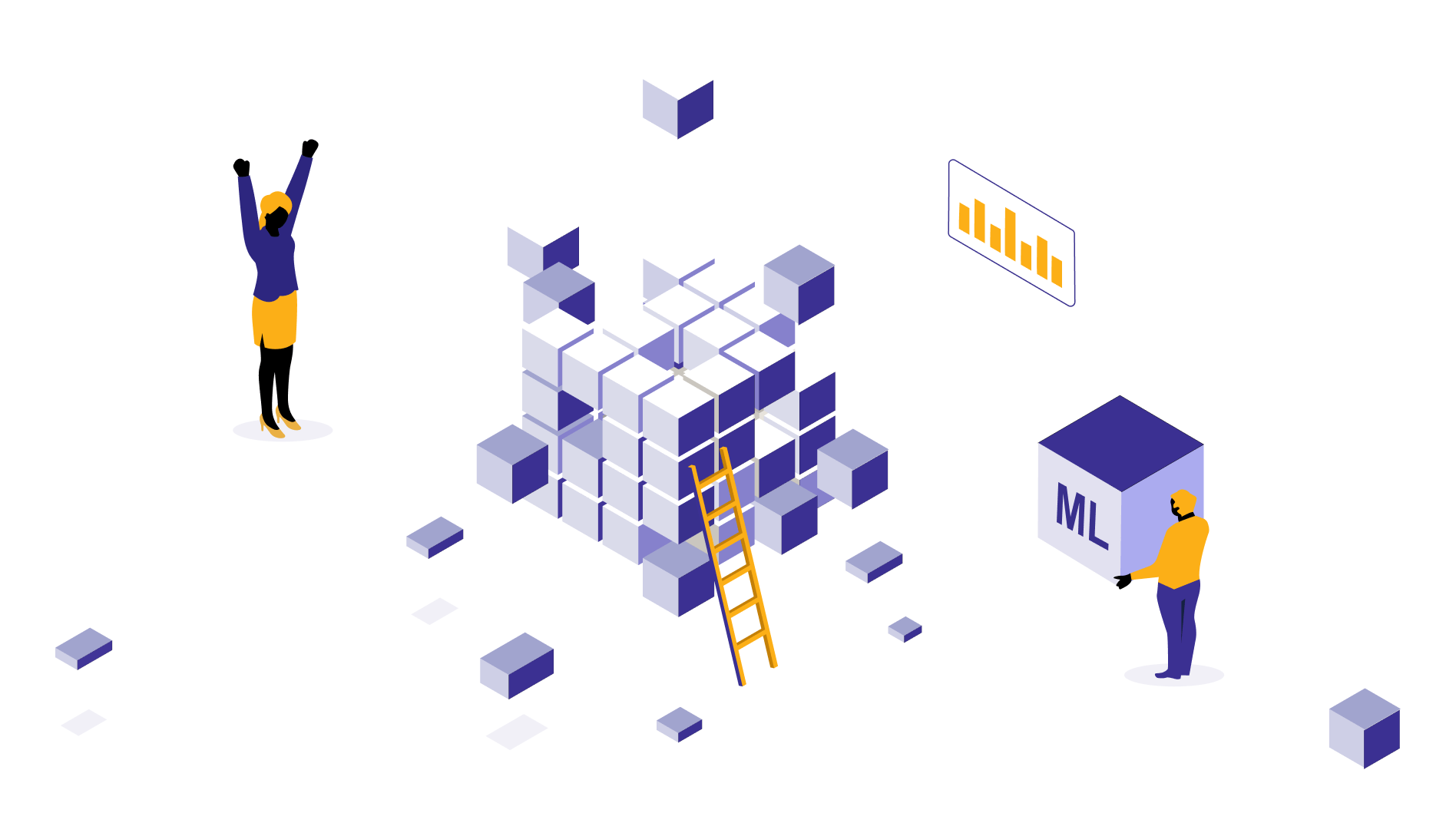Data governance tools – a detailed guide
Hear from our solution architects how to select data governance tool and what to look for, depending on your data landscape. Along with the detailed summary of best data governance tools in the market right now.

Subu
June 11, 2025 |
17 mins

What are the best data governance tools available in the market?
If you want quick answer on the best data governance tools to select, here are some: Alation, Collibra, SAP, Talend, and Atlan. These are some well-known data governance tools. But there is more too. Sharing the detailed information on every data governance tool, its benefits, features, pros, and who should go for it.
1. Alation
Alation has a bunch of data management products, which includes data governance too, combining governance, cataloguing, and collaboration together.
Suitable for: organizations that need to establish firm governance, while also need collaboration capabilities.
Features:
Data discovery and match driven by AI
Collaboration tools that connect stewards and analysts
Policy management and governance features
Benefits:
Easy to set up and scale governance measures
Simplified interface
Robust metadata management
Capterra ratings: 4.4
2. Collibra
Collibra is one of the best data governance tools with data cataloguing, governance, privacy, and compliance components.
Suitable for: Enterprises with utmost regulatory and compliance priorities along with governance management.
Features:
Connects with multiple BI and data tools.
Can automate data lineage and other workflows too.
Impact analysis to measure the consequences of data changes across the organization.
Benefits:
Excellent integration capabilities
Growing community with lots of users. Easy to get needed support.
G2 reviews: 4.2
3. SAP master data governance
Organizations that are already in SAP ecosystem could use SAP master data governance to establish compliance and governance within and across SAP systems.
Suitable for: Organizations that have already invested heavily in SAP infrastructure.
Features:
Integrates with pretty much every SAP solution including SAP S/4HANA.
Pre-built data models for all domains.
Data validations and approval driven through workflows.
Benefits:
Easy to use for existing SAP users.
Can manage even complex workflows.
Helps with data quality management.
G2 review: 4.4
Recommended read: What are the integration capabilities of cloud data warehouses?
4. erwin data intelligence
erwin data intelligence tool is from Quest, which combines data cataloging, governance, literacy, and quality together in one tool.
Suitable for: Organizations with diverse data tools and assets needing a unified and transparent view of data assets.
Features:
Automated metadata management
Tools for stewardship and business glossary
Data lineage and its visualization capabilities
Benefits:
Has superior data lineage capabilities
Smooth and familiar interface.
5. Talend
Talend by Qlik offers a simplified data governance management platform with data lineage, cataloging, preparation, and inventory components.
Suitable for: businesses looking for open-source solutions
Features:
Data quality and data profiling features
Lineage tracking is there along with metadata management
Integration and transformation capabilities
Benefits:
Support from a well-grown community
Easy to set up and deploy
Scalable architecture
G2 reviews: 4.2
Recommended read: What does data cleansing mean?
6. Atlan
Atlan is one of the modern data governance solutions that enables data discovery, governance, and literacy with the help of active metadata management.
Suitable for: companies that need agile governance solutions and enhanced collaboration among teams
Features:
Role-based access control for enhanced security and data protection.
Connects well with data tools like Tableau, Snowflake, etc.
Other features like impact analysis, lineage tracking are there.
Benefits:
Best collaborative features and easy to use interface.
Deployment and onboarding is quick and needs fewer resources.
G2 reviews: 4.5
7. Precisely: Data360 Govern
Precisely offers various data tools one of which is data governance. This tool, Data360 Govern helps with managing data quality, metadata, governance, and accuracy, which comes as a part of data integrity suite of Precisely.
Suitable for: This tool is great for organizations who prioritize accuracy and compliance management.
Features:
Metadata harvesting, data cataloguing, and lineage – all in one place.
Has good integration capabilities with other data tools.
Comes with policy and workflow management.
Benefits:
Covers 360-degree aspects of governance.
Scalable for enterprise needs.
Not yet rated on G2.
8. Apache Atlas
Apache Atlas is an open-source governance and metadata management platform. Designed exclusively for Hadoop systems, it provides governance framework and helps with metadata tagging, data classification, centralized auditing, and more.
Suitable for: Organizations who are already using Hadoop systems and are looking for a data governance solution.
Features:
Metadata defining (through type and entity) and storage.
Automated metadata classification and intuitive search capabilities.
Integrates with other data governance tools and Hadoop ecosystem.
Benefits:
Open-source and extensible.
Active community support.
G2 reviews: 4.6
9. Ataccama ONE
Ataccama ONE is an all-in-one data management platform with robust data governance, compliance, and quality management capabilities.
Features:
Data cataloguing and governance in one place.
Anomaly detection powered by AI.
Automated data profiling and cleansing.
Benefits:
Data quality management systems and features to maintain accuracy,
Scales with your company data architecture.
Simple and user-friendly interface.
G2 reviews: 4.2
Things to consider while selecting data governance tools for your business
Cost effectiveness
Data governance tool cost cannot be considered like a monthly spend. It’s more than that – the enabler of organizational governance, trust in data, and compliance check, whose spending couldn’t be justified with simple ROIs.
At the same time, selecting a cost-effective tool is also important, where requirements must align with affordable plans. Hence, check beyond licensing and consider time it saves through automation, quality levels it promises, or auditing features it comes with.
Here's what you need to check while considering data governance tool costs.
Whether it’s pay-as-you-go, enterprise license, or open-source model.
Total cost of ownership, which includes licensing, deployment, maintenance, and support.
Recommended read: What is a data fabric?
Role of AI and machine learning
The meaningful addition of AI and ML makes all the difference in data governance tool, automating redundant tasks. If you need AI-powered tools, check if the following use cases are present.
Auto-tagging and classification of data assets
AI-powered data lineage
Policy suggestions, anomaly detection, and other workflow automation.
Such features can come in handy when you are scaling data architecture.
A good tip to avoid expensive tools in the name of AI would be to select the ones where AI simplifies things, not adding complexity.
Ease of use
A governance tool may be used by many – data stewards, analysts, compliance teams, business heads, etc. Choosing a user-friendly tool minimizes confusion and chaos and allows everyone to explore.
Does it have role-based workflows?
Does it have product tour for every user?
How steep is its learning curve according to other users?
How useful are the documentation and resources?
These are some questions you can ask while making data governance tools comparison.
Integration
While choosing a data governance tool, you should see if it fits into your data architecture and integrates with every other tool: storage, analytics, cloud platforms, etc. A tool with plug-and-play integration capabilities would be a better option, as it promises faster rollouts and smooth operations.
Check if the data governance tool has:
Custom integrations
API calls
Out-of-the-box connectors
Metadata harvesting
Security and compliance
Data governance and data security and protection go hand in hand. Hence, choose a tool that offers:
Strong compliance features like HIPAA, GDPR, SOC2 readiness, etc
Data masking and RBAC
Incident tracking
Audit trail support
Vendor support
Select a tool that can support your regulatory and risk management requirements, meeting both technical and legal standards.
How scalable it is
Data governance tools are life long investments; selecting something that grows with your data is the best option. Before finalizing the tool, ask these questions:
Does it offer multi-tenant support?
Is it a cloud-native platform, which are more scalable than the rest?
Can it flexibly support both federated and centralized data governance goals?
All of this is crucial as data governance can’t be considered as a onetime project. Data volume might grow, user roles might get nuanced, regulations could become complex. Your tool must be able to support all this.
Recommended read: What is mdm master data management?
Final thoughts
Someone somewhere said, “Without data governance, dashboards are just colorful lies.” Probably a data steward or a BI expert. But they are right. Data governance plays a role so instrumental, keeping the data secure, accurate, and consistent, without which even advanced AI and analytics can crumble down like a house of cards. This is where data governance tools take up the load, making everyday data accessible for your business and keeping data governance challenges at bay. Talk to one of our solution architects who can help you make this important decision of selecting a data governance solution or platform for your business, evaluating your data infrastructure.
If you’re looking to implement governance the right way, explore our data engineering services & solutions that help you operationalize these tools across your ecosystem.

by Subu
With over two decades of experience, Subu, aka Subramanian, is a senior solution architect who has built data warehousing solutions, led cloud migration projects, and designed scalable single sources of truth (SSOTs) for global enterprises. He brings a wealth of knowledge rooted in years of hands-on expertise while constantly updating himself on the latest technologies. Beyond architecture, he leads and mentors a large team of data engineers, ensuring every solution is both future-ready and reliable.



